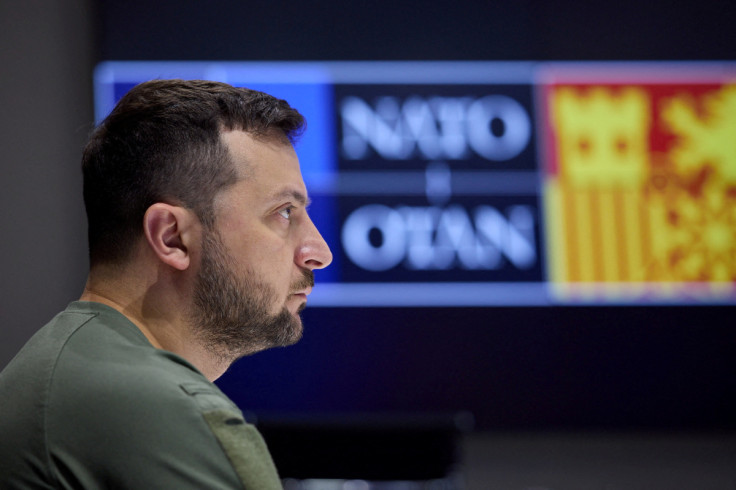Two Villages Relish Partial Power As Ukraine Faces Blackouts
Nestled by the mouth of the Southern Buh river within earshot of fighting between Russian and Ukrainian forces for the southern city of Kherson, the village of Lymany counts itself as one of Ukraine's more fortunate places.
The hamlet of modest brick homes and gardens with olive, orange and pomegranate trees has electricity. It is not always on. But when it is, that means clean water for drinking, bathing, and cooking, cellphone service and television.
"I have an angel and every night, the angel opens its wings and covers the village," said Nataliia Panashiy, 54, a teacher who serves as the mayor of Lymany and the nearby village of Lupareve.
Lymany and Lupareve have not been spared the fighting that has convulsed countless other Ukrainian villages, towns, and cities. They sit close to the Russian lines that the Ukrainian troops drove back beginning in August in a counter-offensive for Kherson, located about 30 km away.
But their power supply means that residents who had earlier fled the village are returning.
"The power goes on and off," said Oleksandr Kovasenko, 25, a construction worker. "But we have enough. And we have an electrician who makes repairs all the time."
Their good fortune contrasts with swathes of Ukraine in which tens of thousands have lost light, heat and water as Russia intensifies pre-winter missile and drone barrages against power plants and other infrastructure.
President Volodymyr Zelensky said on Tuesday that 30% of Ukraine's power stations had been destroyed.
The daily Russian salvoes follow weeks of gains by Ukrainian forces fighting to retake territory in eastern and southern Ukraine seized by Moscow's troops since they invaded in February.
Clashes are taking place less than 20 km (12 miles) southeast of Lymany as Ukrainian troops push to reclaim Kherson, the Russian-held provincial capital of one of four partially occupied regions Moscow claimed to be a part of Russia earlier this month.
Russian shells hit the villages intermittently. On Tuesday, the occasional crump from distant artillery fire could be heard in Lymany as volunteers from the port city of Mykolaiv dropped off food and other humanitarian aid at a building housing Panashiy's office and the village library.
One side of the building and part of the roof were smashed this summer by a Russian shell.
"This building is 260 years old. It survived the last war," recounted Panashiy, referring to World War Two, as she surveyed the rubble. "The Germans had a command post in this building, and the building survived."
The aid workers also dropped off wood-burning stoves at the town hall and at homes lining the dirt tracks that weave through Lymany and Lupareve.
The stoves, funded by foreign donations, embody the villagers' fears that their power and natural gas will be cut as winter weather arrives.
"We still have gas. As long as we have gas there is a chance," said Panashiy. "But if the gas gets cut, then there will be a whole chain of problems."
'WE HAVE ENOUGH'
The earlier fighting left the villages without power and water, prompting the flight of all but 216 of Lymany's 4,000 residents and 36 of Lupareve's 1,200 residents, Panashiy said.
But three weeks ago, Ukrainian troops restored power to the villages via a cable they laid to a distant factory, villagers said. That meant they could turn on their water well pumps.
"A lot of people left, but many have started coming back,"
said Tetiana Huk, 61, a retired nurse who lives in Lupareve and helped treat injured residents and Ukrainian soldiers.
For Panashiy, however, electricity can be a two-edged sword.
Three dormant wind generators sit outside the village, their blades idle in the autumn breeze sweeping up from the estuary. Panashiy does not want them working again, at least until the end of the war.
During nighttime fighting this summer, villagers doused their lights before cowering in their homes or in a public bunker. But red aircraft warning lights blinked unceasingly on the towers, Panashiy said, providing Russian gunners with aiming points.
"That's why we were shelled," she said.

© Copyright Thomson Reuters 2025. All rights reserved.





















